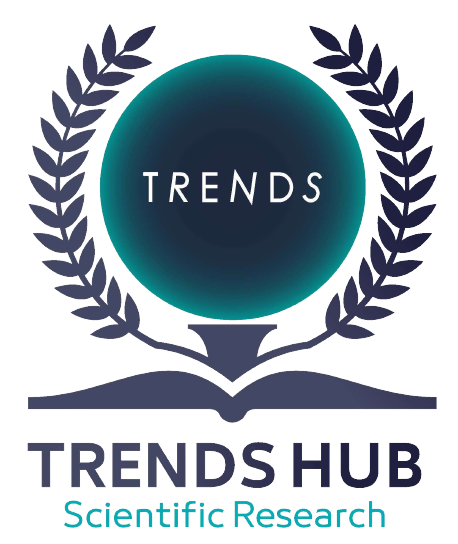Nominations for the award starts on September 9 2023 until April 1 2024 and includes four research areas for submission
Political issues and security and military affairs
Political issues and security and military affairs
Economic issues and development, climate and sustainability issues
Economic issues and development, climate and sustainability issues
Cultural and social issues
Cultural and social issues
Technology and artificial intelligence (AI)
Technology and artificial intelligence (AI)




"The launch of the award reflects our belief that honouring researchers who are making great progress in various fields of scientific research is not only a recognition of their achievements, but also inspires other researchers and urge them to strive for excellence and innovation”
Dr. Mohammed Abdullah Al-Ali, CEO of TRENDS Research and Advisory
Why 9th of September?
This date coincides with the TRENDS anniversary.
Submission Deadline
The nomination in the four areas of the award closes in February of every year.
Winner Announcement
The winning research shall be announced and the awards shall be handed to the winners on the 9th of September every year.


Not just that
There is more:
The winning studies will be published on electronic platforms and through various TRENDS’ social media accounts.
The top three nominated researchers in line with the four topics shall be granted a "certificate of appreciation" each.
The winning researchers will be granted the opportunity to be nominated for a research fellowship at TRENDS Research and Advisory.
Winners will have an exclusive access to the training courses held by Trends in their respective fields of research.

Terms & Criteria
Academic Qualification
The candidate should hold a higher academic qualification in the same field of the study relevant to the paper submitted.
Guidelines
There is a set of criteria for the research paper, most notably:
• Conditions: The research paper must adhere to internationally-recognized scientific research standards.
• The paper: It must be original individual work, untranslated, unpublished, and not submitted for publication by a third party.
• Language: The research paper must be delivered in correct a clear Arabic or English language.
• Word count: It must not exceed 5000 words (in English) or 6000 words (in Arabic), excluding the notes and references.
• Formatting: paper must be formatted in terms of font type and size, and include main titles and subtitles, and a short biography at the end of the paper.
• Reference citation: Information and references must be properly cited, by consistently using the recognized citation styles (such as APA and MLA).
Languages
The research must be delivered in correct idiomatic Arabic or English language.
References
The Study must use valid citations, reliable information and proper referencing.
Award Jury Panel
The academic referee panel of experts shall consist of prominent figures in each field of the award. The referees shall review, vetting and assessing the nominated papers, provided that the evaluation criteria include the significance and impact of research and the extent of its commitment to the approved methodology of research.
Appendix
About the suggested topics of study:
Artificial Intelligence (AI)
• “AI in International Relations: Opportunities and Challenges for Global Governance.” Topic: Examining how AI reshapes international relations and affects global governance.
• “The Future of Jobs in the Age of AI: Social and Political Implications”. Topic: Discussing social and political implications of AI-induced changes in the labor market and labor force.
• “AI in Government: Enhancing Public Services and Decision Making.” Topic: Reviewing successful AI applications in public sector and evaluating their impact on governance.
• “AI and Disinformation: Addressing the Spread of Disinformation in the Digital Age.” Topic: Discussing the role of AI in combating disinformation and its impact on political discourse.
• “Making AI Responsible.” Topic: Assessing how ongoing developments in AI (military applications, for example) pose unforeseen ethical and legal challenges to governments and policymakers.
Tolerance
• “Harmony in Diversity: Promoting Tolerance and Coexistence in Multicultural Societies”. Topic: Finding strategies and policies to promote tolerance and peaceful coexistence in diverse societies.
• Inclusive Governance: Promoting Tolerance and Social Cohesion”. Topic: An analysis of governance models promoting inclusiveness, tolerance, and social cohesion in diverse societies.
• “Teaching of Tolerance: Empowering Future Generations for a Pluralistic World”. Discussing the importance of teaching tolerance in shaping the mindsets of future generations.
• “Religion, Politics, and Tolerance: Navigating Peaceful Coexistence”. Topic: Exploring the complex relationship between religion, politics, and tolerance to promote peaceful coexistence.
• “Media and Tolerance: Shaping Narratives for Social Cohesion”. Topic: Examining the role of the media in shaping the narratives that promote tolerance, understanding, and coexistence.
• “Conflict Resolution and Tolerance: Nurturing Peaceful Coexistence”. Topic: Examining the role of conflict resolution efforts in building tolerance and peaceful coexistence.
Environment and sustainability
• “Sustainable Governance and Policy: Surmounting Environmental Challenges”. Topic: Exploring the role of governance and policy in addressing environmental and sustainability challenges across the world.
• “Global Climate Justice: Bridging the Gap between Policy and Practice”. Topic: Analyzing the concept of climate justice and its practical impact on policymaking and environmental action.
• “Environmental Diplomacy: Shaping International Agreements for a Greener Future”. Topics: Examining the role of diplomatic efforts in strengthening environmental cooperation and addressing global sustainability issues.
• “Environmental Policy Innovations: Paving the Way for a Resilient Future”. Topic: Highlighting innovative policy measures and practices that tackle environmental challenges and enhance resilience.
• “Environmental Policy and Participation of Citizens: Mobilization for Sustainable Change”. Topic: Exploring the role of grassroots involvement and participation of citizens in shaping environmental policy and sustainable outcomes.
• “Sustainable Urban Governance: Fostering Environment-friendly Cities”. Topics: discussing effective governance models for promoting sustainability and environmentally-friendly practices in urban areas.
• “Digitalization: The 3rd Industrial Revolution and its Impact on the Environment”. Topic: How increased global digitalization has increased the carbon footprint of the IT sector, and the role of policymakers in regulating the industry’s environmental standards.
